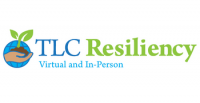By Robert Goldman, Psy.D., J.D., and Jaclyn Gordon
In the past, I have been invited to participate in Superintendent’s Day training with numerous school districts. Most of the topics focused on addressing the student’s needs. Just recently, I was consulted to provide resiliency training for teachers. This was a courageous and important step by the superintendent, who acknowledged that something needed to be done to support our teachers. It is a paradigm shift that speaks to the recent survey of teachers nationwide, which demonstrated that 75% of them felt that their mental health has suffered since the pandemic, compared to 40% of other working adults. Sadly, only 6% of teachers reported being offered mental health supportive services from their respective schools to help them cope. Most telling is that 25% of teachers said that they were likely to leave their jobs by the end of the 2020–2021 school year, compared with 1 in 6 teachers who were likely to leave, on average, prior to the pandemic.
Teaching has long been proven to be one of the most emotionally exhausting professions (Day, 2008). Taking work home, lack of resources in schools, unsupportive administrators, parents, and an imbalanced ratio of students in the classroom all contribute to the decreasing mental health in this field. Now, teachers have faced and worked through yet another factor that has put them at risk for burnout, the COVID-19 pandemic.
It has been well documented that teachers have suffered greatly in the midst of the pandemic. Most teachers have now returned to the classroom and there are many lingering symptoms. Teachers are left with the effects of what they saw when the curtain was drawn back: the harsh realities of how their students were impacted by the pandemic. Teachers saw students experience grief, loss, financial instability, and more. Access to Wi-Fi, technology, or quiet places in the home were privileges that not every student had during remote learning. Teachers were faced with accommodating this and figuring out how to both emotionally and academically support their students in entirely new terrain.
In being exposed to some of the harsh realities many teachers found themselves crossing boundaries to provide support to their students in ways they have never before. Even before the pandemic, teachers have been found to suffer from moral injury, a concept when one experiences distress from going against their beliefs and values of living. A teacher who may have previously held stern boundaries, such as not answering emails at night or on weekends for self-preservation, may have crossed this during the pandemic due to the high needs students were in. This is only one example, and we can expect the moral injury already present in the field has been exonerated by the experiences during the pandemic.
As teachers have expanded the boundaries, students and parents have had difficulty going back to the pre-COVID expectations. These expectations only serve to compound the problem and make it harder for teachers to maintain their boundaries and increase the likelihood of experiencing frustration amongst the teacher, student, and parent.
What can be done? Clearly, teachers have been in need of support for many years and the pandemic has further shed light on this drastic situation. For starters, administrators and leaders in education can acknowledge the difficulties that teachers are facing and allow for open communication and an environment of psychological safety. Psychologically safe environments foster resilience, a much-needed quality in education right now.
We can also help continue the conversation, and recognize that supporting mental health is not a one-time deal, but rather a continuous effort that needs to be maintained over the course of one’s life. Many teachers have expressed the need for mental health support including access to counseling offered by their district. Districts offering teachers counseling resources will help them feel supported and seen by their superiors, something that has been shown to foster resilience.
The superintendents who have brought in outside resources and shown support towards their teachers are paving the way for a changed narrative in education. We hope to continue to see this momentum move forward, and help support these professionals throughout their career and lifetime.
Jaclyn Gordon is a fourth-year doctoral student in Hofstra University’s School-Community Psy.D. program.
References
Day, C. (2008). Committed for life? Variations in teachers’ work, lives and effectiveness. Journal of Educational Change, 9(3), 243–260.

